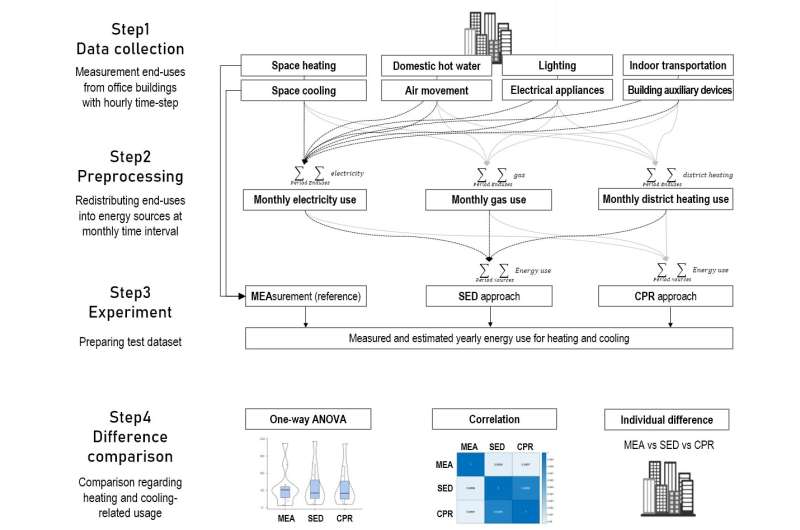
The Korea Institute of Civil Engineering and Building Technology (KICT) developed an algorithm designed to help estimate heating and cooling consumption easily in buildings that cannot afford a building energy management system (BEMS).
BEMS, which is a system designed to save energy, monitors in real time the energy consumption of buildings and provides building managers with optimized ways of energy management.
The Korean government unveiled its "2050 Carbon Neutrality Roadmap for Land and Transportation" in December 2021 and set a challenging target of reducing emissions from 2018 levels by 80% by 2050. In line with the roadmap, the green remodeling of all buildings will become mandatory from 2025. However, most of the relevant regulations are focused on large, newly constructed, and energy-consuming buildings. Small-and medium-sized buildings below 1,000m2, which account for at least 90% of existing buildings, are excluded.
To reach carbon neutrality in buildings, technical support should be given to the relatively small buildings where maintenance is complex and expensive and therefore does not favor the adoption of BEMS. A more practical, realistic solution is required.
Against this backdrop, a research team of the Department of Building Energy Research (Dr. Seung-Eon Lee, Dr. Deuk-Woo Kim) at KICT developed an algorithm that can easily separates and estimates the heating and cooling energy consumption from total consumption at lower cost than the existing method. It utilizes outdoor temperature data from the Korea Meteorological Administration and energy consumption data from the National Building Energy Database of the Korea Real Estate Board (REB).
The algorithm uses the patterns of energy system operation, which vary across seasons; heating and cooling systems are used most in summer and winter and least in spring and autumn. Performance of the algorithm was compared and tested against extensive measurement data from 11 commercial buildings. The results showed that its error rate was within the low range between 5% and 17%.
Application of the algorithm to the national energy database run by the REB will be discussed in the second half of this year. Then, a database of buildings' heating and cooling energy consumption data will be established and make it available to all the buildings that pay energy bills. Benchmarking research on heating and cooling energy performance indicators will be conducted after the database is established.
Dr. Seung-Eon Lee, who led the research published in the journal Buildings, said, "The algorithm will help us quantitatively manage the progress toward carbon neutrality of buildings without a blind spot in energy consumption data."
This research accomplishment was a part of the project of the Ministry of Science and ICT, "Data-Centric Checkup Technique of Building Energy Performance (with Dr. Seung-Eon Lee as the project leader over the period from 2018 to 2022)."